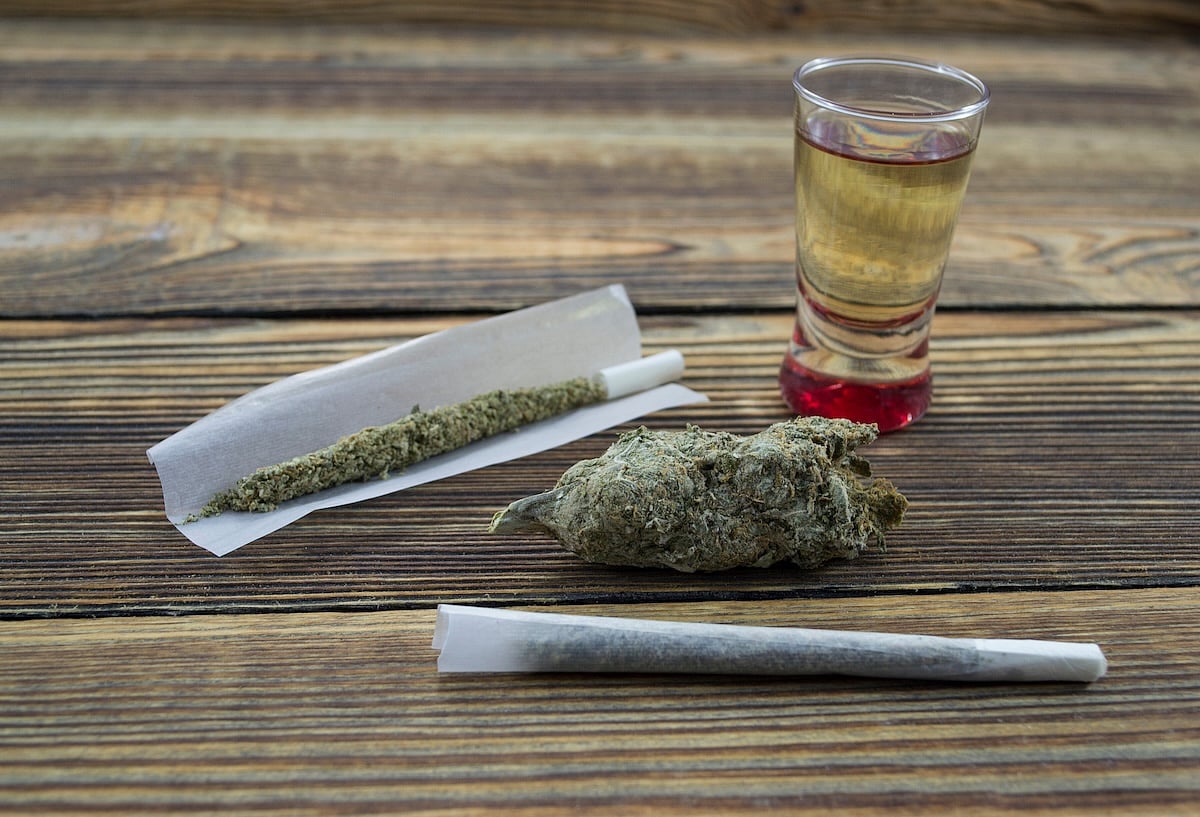Patient Resources
Get Healthy!
"California Sober" Strategy Might Curb Drinking, Study Finds
- November 19, 2025
- Dennis Thompson HealthDay Reporter

A growing number of people are ditching alcohol in favor of weed, a trend dubbed “California sober” or “Cali sober.”
Now, a new study suggests there might be something to this more flexible approach to sobriety.
Smoking marijuana might lead people to drink less, at least in the short term, researchers reported Nov. 19 in the American Journal of Psychiatry.
Exposure to THC — the intoxicating compound in weed — caused people to imbibe fewer drinks and delay their alcohol intake, researchers found in a series of laboratory experiments.
Further, cannabis loaded with higher levels of THC caused participants to drink even less than weed with less THC, results show.
“What we found was consistent with this idea of the substitution effect popularized by the California sober trend,” lead researcher Jane Metrik, a professor of behavioral and social sciences at Brown University in Providence, Rhode Island, said in a news release.
“Instead of seeing cannabis increase craving and drinking, we saw the opposite,” Metrik said. “Cannabis reduced the urge for alcohol in the moment, lowered how much alcohol people consumed over a two-hour period and even delayed when they started drinking once the alcohol was available.”
“California sober” is a term originally coined by singer Demi Lovato to describe using weed in moderation, while avoiding alcohol and hard drugs.
Lovato herself has since renounced “California sober,” stating in a 2021 Instagram post that, “Sober sober is the only way to be.”
For the study, researchers recruited 157 adults 21 to 44 who drink heavily and use weed at least twice a week.
Each person came to the lab on three separate days where they were provided one of three different joints in random order — one containing a high level of THC, another with a low level and a third “placebo” loaded with THC-free cannabis.
After smoking, participants were offered servings of their favorite alcoholic beverage for two hours. They could choose to either knock back the drink or earn $3 for each serving they declined.
During these two-hour sessions, people were provided enough booze to raise their blood alcohol level to about 0.10 g/dL, which is above the legal limit in most states.
Results showed that people drank less alcohol on the days they smoked THC-loaded weed than when they smoked the placebo weed.
The dose of THC also appeared to influence the amount they drank.
When participants smoked 3.1% THC weed, they drank about 19% less than when they smoked the placebo, the study says.
But when they smoked 7.2% THC cannabis, they drank about 27% less alcohol.
THC also appeared to diminish the urge to drink. Those smoking 7.2% THC marijuana took significantly longer to sip their first drink than when they smoked the placebo.
“We saw that cannabis reduces the urge in the moment,” Metrik said. “What we don't know from this study is what is the long-term effect.”
The research team warned that these results shouldn’t be read as a recommendation that people substitute weed for alcohol. Cannabis can be addictive, they noted.
There’s also a risk that weed might increase drinking among people who tend to combine cannabis with alcohol to enhance the effects of each, or if they use both together in social settings, researchers said.
The team is now conducting a clinical trial to explore what happens when weed and alcohol are used at the same time, and how different cannabis compounds like THC and CBD might influence alcohol consumption.
“Our job as researchers is to continue to answer these questions,” Metrik said. “We can’t tell anyone yet, ‘you should use cannabis as a substitute for problematic or heavy drinking.’"
More information
The Cleveland Clinic has more on “California sober.”
SOURCES: Brown University, news release, Nov. 19, 2025; American Journal of Psychiatry, Nov. 19, 2025

